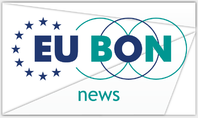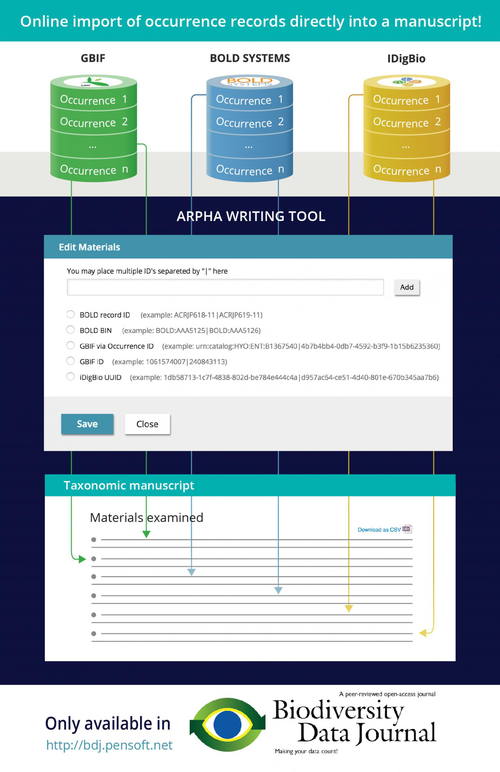
Substantial amount of documented occurrence records is awaiting publication stored in repositories and data indexing platforms, such as the Global Biodiversity Information Facility (GBIF), Barcode of Life Data Systems (BOLD Systems), or Integrated Digitized Biocollections (iDigBio). In order to streamline the authoring process, save taxonomists time, and provide a workflow for peer-review and quality checks, Pensoft has introduced an innovative feature that makes it possible to easily import occurrence records into a taxonomic manuscript.
Prior to this development, Pensoft's ARPHA Writing Tool (AWT) only used the "upload from Excel" approach for this workflow. Although this method significantly simplified the process of importing materials and is actively used by the authors, it still required one extra transposition step.

Now, we added a new even more user-friendly option. By simply specifying an identifier (ID) in the relevant box, the new import plugin allows for occurrence data, stored at GBIF, BOLD systems, or iDigBio, to be be directly inserted into the manuscript. It all happens in the user-friendly environment of the AWT, where the imported data can be then edited before submission to the Biodiversity Data Journal.
Not having to retype or copy/paste species occurrence records, the authors save a lot of efforts. Moreover, they automatically import them in a structured Darwin Core format, which can be easily downloaded from the article text into structured data by anyone who needs the data for reuse after publication.
Another important aspect of the workflow is that it will serve as a platform for peer-review, publication and curation of raw data, that is of unpublished individual data records coming from collections or observations stored at GBIF, BOLD and iDigBio.
The work has been partially supported by the EC-FP7 EU BON project (ENV 308454, Building the European Biodiversity Observation Network) and the ITN Horizon 2020 project BIG4(Biosystematics, informatics and genomics of the big 4 insect groups: training tomorrow's researchers and entrepreneurs), under Marie Sklodovska-Curie grant agreement No. 542241.




 RSS news
RSS news Print this article
Print this article
